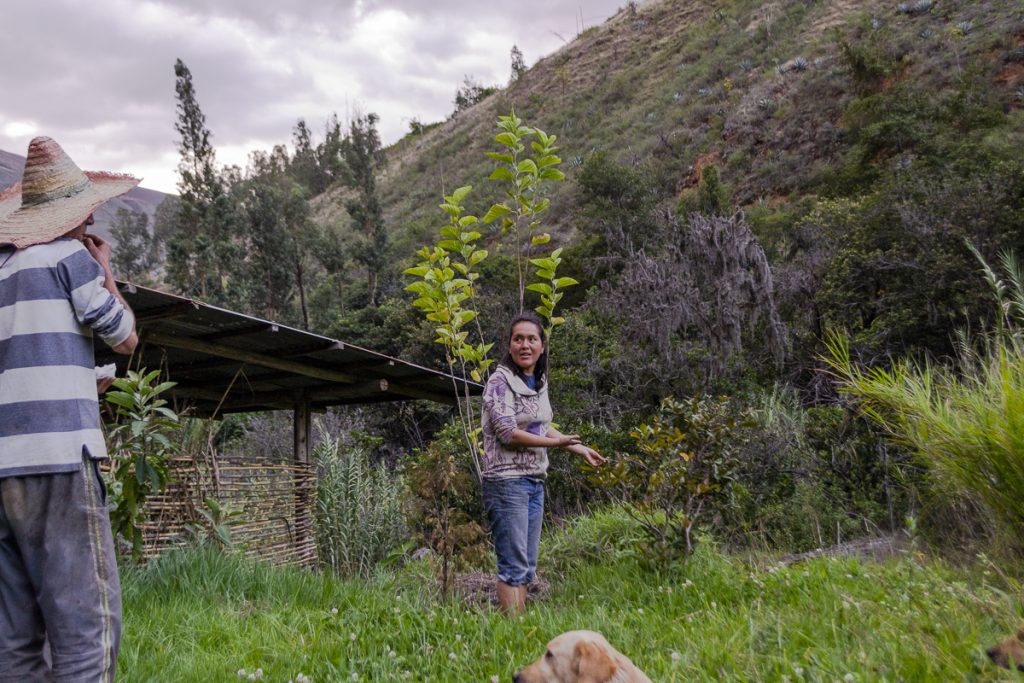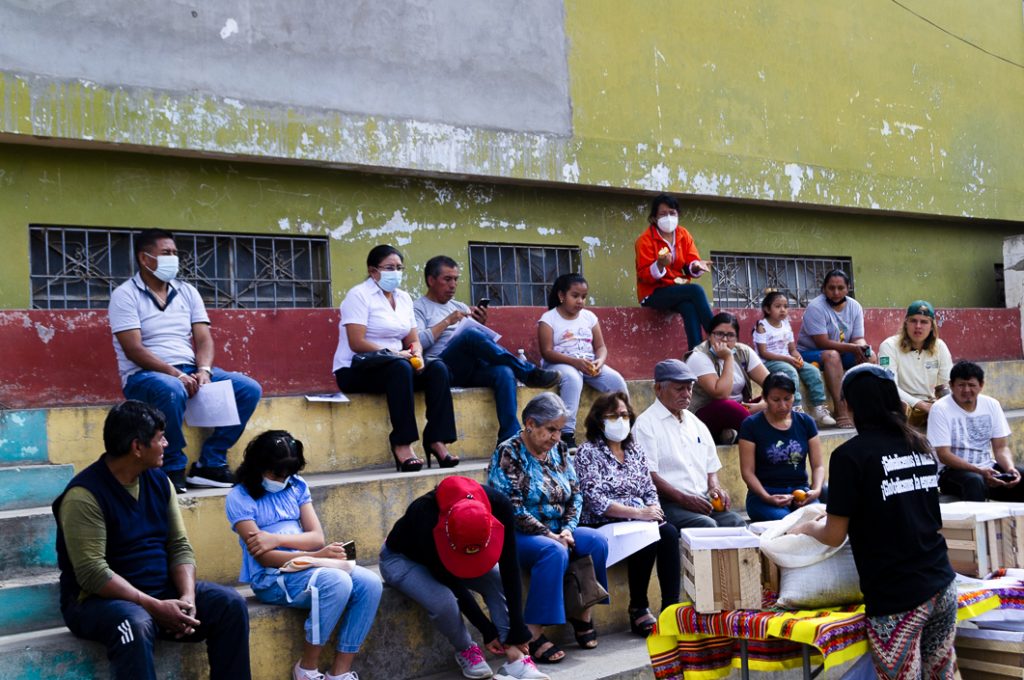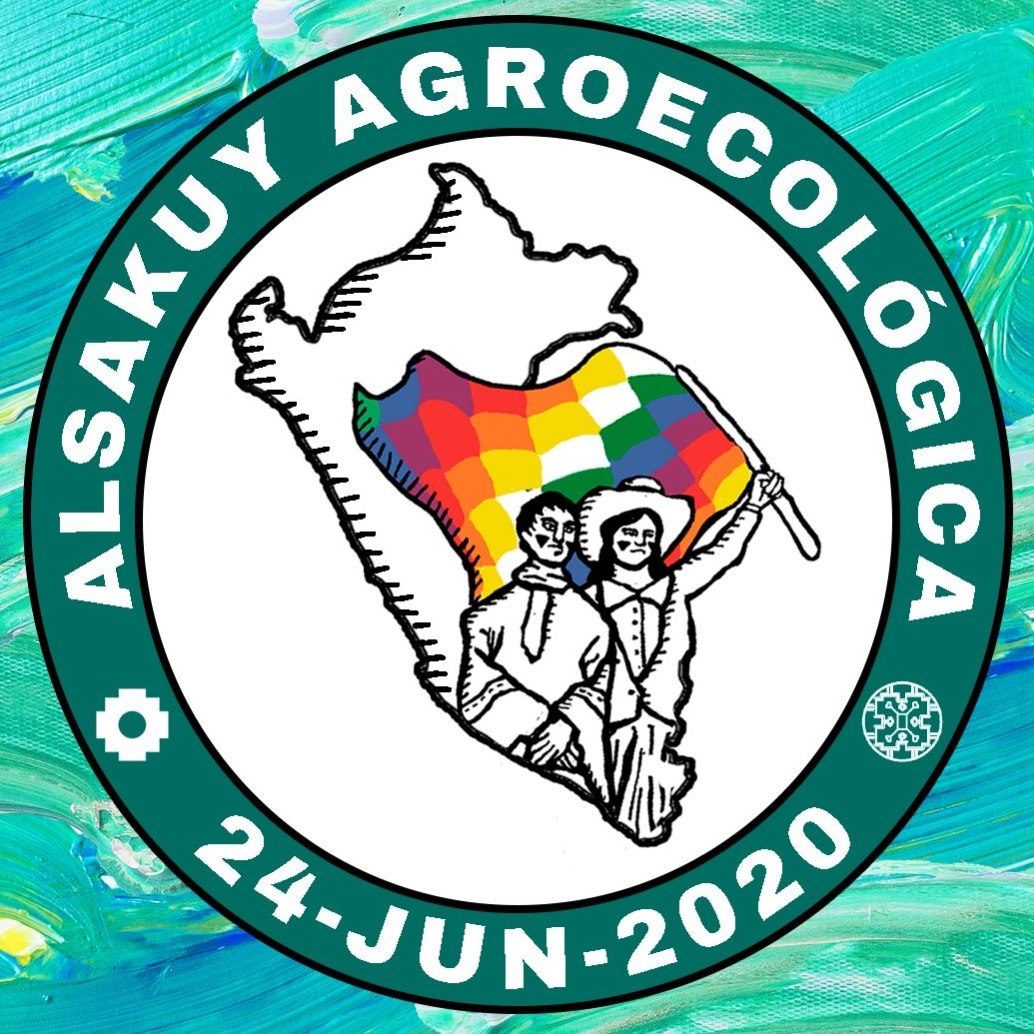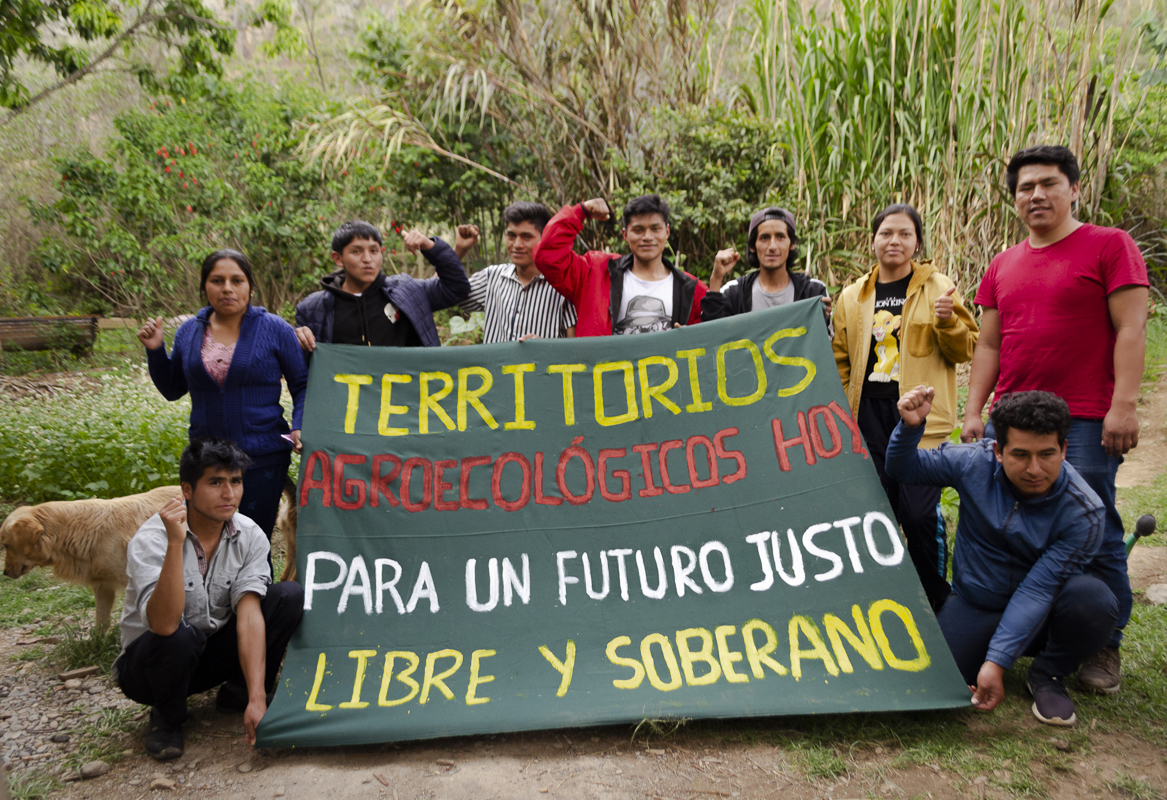
Translated by Lola Malavasi
Images courtesy of Alsakuy Agroecológica
Alsakuy Agroecológica began as a youth collective for agroecology and food sovereignty in 2020. Its founding coincides with the Day of the Peruvian Peasant, June 24th. The collective has established itself as an open space for training in agroecology and socio ecological issues on a territorial level in Peru and different territories of Latin America and the Caribbean, even beyond the continent. This is carried out through training programs such as the Escuela de Agroecologías desde el Sur (School of Agro Ecologies from the South), Escuela por un nuevo pacto ecosocial (School for a new ecosocial pact), Nuevos paradigmas para una transformación desde las agroecologías (New paradigms for a transformation from agroecologies), and recently with the course Agroecologia(s) política(s) y soberanía alimentaria (Political agroecologies and food sovereignty), open call programs free of charge.1 These were developed online during the pandemic. The schools have been expanded into hybrid platforms to strengthen territorial interactions in Peru at a time of urgent political upheaval. In these dialogue training processes, the collective emphasizes South-South exchanges for the recognition and critical study of diverse agro-food systems, extractivism, water justice, food, and energy sovereignty, from anti-racist and anti-patriarchal perspectives.
Following the removal and imprisonment of Pedro Castillo in December 2022, Peru is under a civil-military dictatorship led by Congress and the de facto president, Dina Boluarte, politically isolated amid unceasing protests. To this day, more than seventy people have been killed by police and armed forces. Hundreds have been wounded, arbitrarily detained, and disappeared. The popular mobilization demands the resignation of Boluarte, the release of Pedro Castillo, a call to elections in 2023, the shutdown of a Congress characterized by misogynist, racist, and classist positions, as well as the urgent conformation of a popular constituent assembly.
Alsakuy Agroecológica, for whom there is no agroecology without social justice, has pronounced itself in favor of the transformation of Peruvian realities towards dignity, justice, and sovereignty of the peoples that make up Peru, hoisting agroecological militancy as a socio-political dimension that demands a historical and political position in solidarity with the peoples’ struggles.
***
Alsakuy aims to accompany the processes of collective narrative building to strengthen youth organizations and organized youth. The aim is to increase their participation within spaces of dialogue and political advocacy. In our members’ previous experiences, we managed to create instances of training for political groups around political agroecology,2 food sovereignty, and socio-ecological issues. We complement this with workshops focused on narratives for advocacy and intergenerational dialogue processes.
After articulating with different youth organizations, we have seen the need to generate spaces to strengthen organizational capacities. For this reason, we are planning and constructing a training program to systematize experiences for youth organizations. Its purpose is to amplify the chronicling and ability to replicate the various experiences achieved territorially by youth organizations, in addition to helping strengthen the community of activists and broadening the awareness of society as a whole.
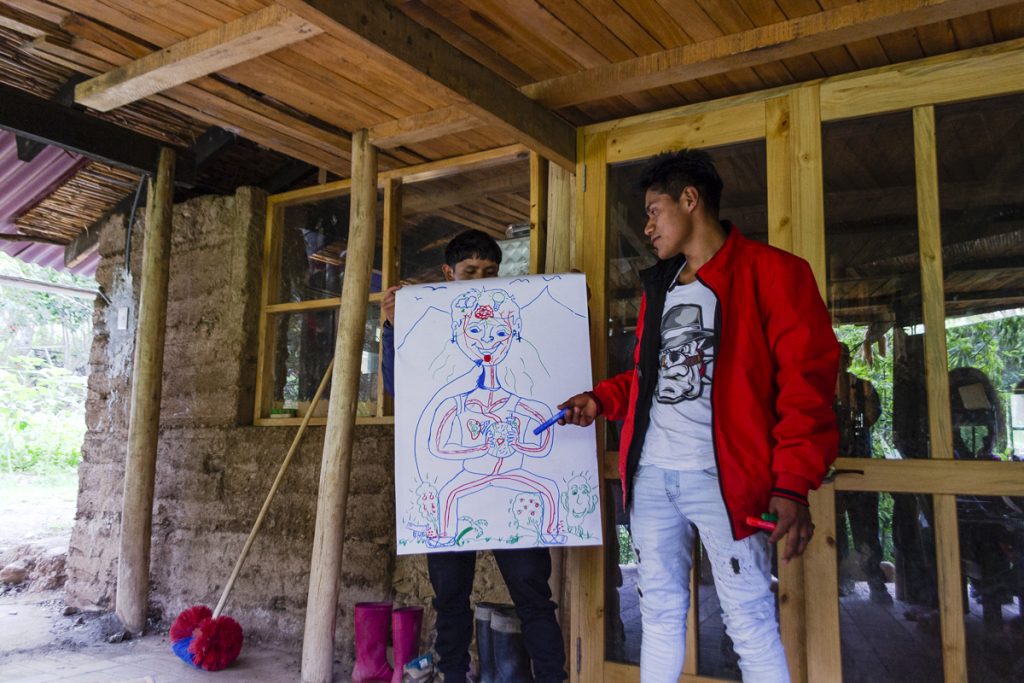
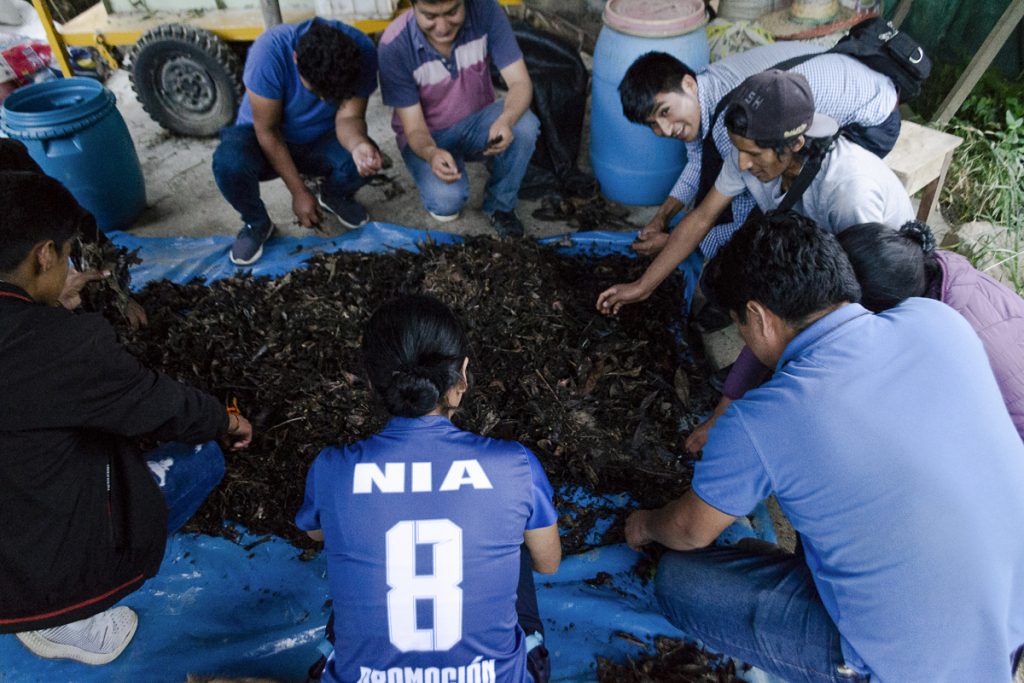
Within our commitment to the national reality, as organized youth we have been able to promote and accompany mobilizations, sit-ins, and picketing information to raise awareness in society about the various socio-ecological, political, and inequality problems that exist and persist in Peru. We have also participated in events such as: the presidential debate on the ecological and climate emergency, which included six candidates to the Peruvian presidency, in 2021; the creation and presentation of the Peruvian Ecosocial Pact; the participation as youth members of the Transgenic-Free Peru Platform, and the #RepsolHazteCargo platform. We are also co-organizers of the Global Climate Strike for Peru and the #JuventudesPorLaAmazonía campaign within the Alza la voz por la Amazonía National Campaign.
Political and peasant agroecology from a decolonial, intergenerational, and intersectional perspective
From a legal point of view, we are a non-formalized space. We self-manage our activities and, as a result of our achievements, we have the support of organizations such as the Peruvian Agroecological Consortium and, recently, Oxfam in Peru. Although we have a virtual presence in Latin America, we are currently located in specific territories in Peru, attempting to do a labor of territorialization that, like in the virtual framework, will allow us to connect through activism, the arts, and academia. Our first intention is to share expressions, conversations, and knowledge from popular education. We keep open the possibility of exchange between people of different ages, from children to older adults with different knowledge and experiences, committed to an agroecological transformation in their contexts and creating common spaces. The foundation of our stance is political agroecology. The purpose of it is to articulate the importance of the politicization (non-partisan) of our agri-food systems in contrast to agribusiness models and the extractivism of bodies and territories. At the same time, we also work from a peasant agroecology to connect with those who produce and work the land according to their traditions, knowledge, and know-how, constantly practicing agroecology without necessarily calling it agroecology.
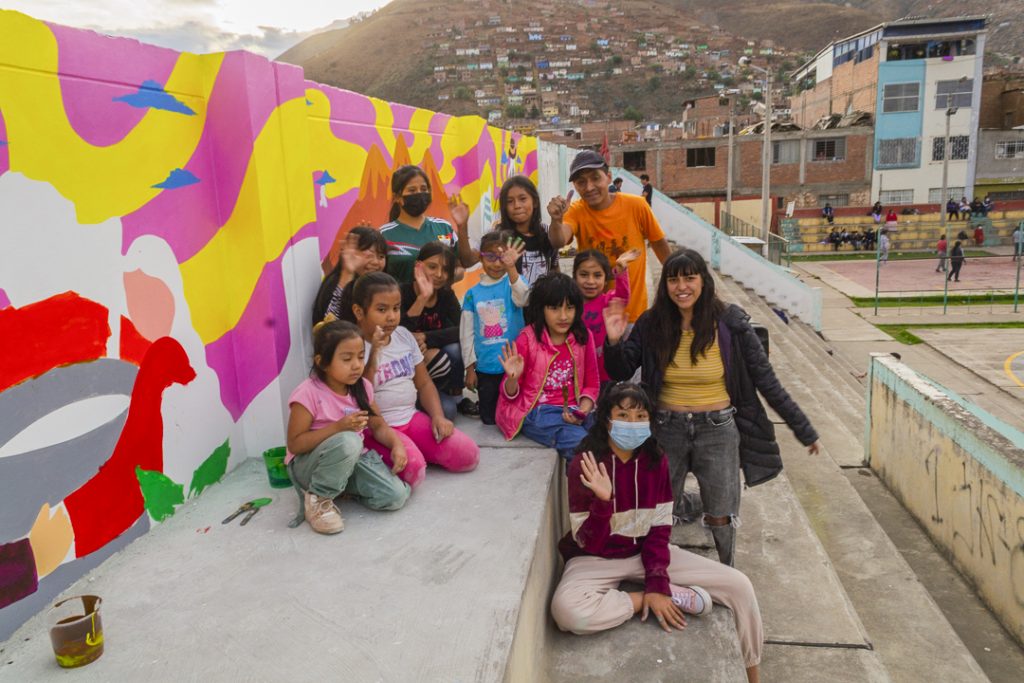
Education and questions
The questions that guide and give cohesion to the discussion on climate, social, and epistemic justice in the South are: if agroecology is driven by the institutional/academia and the movements of the South, what is the line that divides it, and what is the point of convergence? What is the meaning of being, existing, resisting, inhabiting, and reflecting on our lives and territories within a context with multiple crises (climate, food, political, etc.)?
We consider popular education to be a revolutionary instrument that allows us to democratize access to the diversity of knowledge. It starts from a clear political commitment —in pedagogy and andragogy— to be transformative, not servile to the interests of the same capitalist model. Inside, it is possible to have a dialogue and discuss the local and regional injustices we go through on a particular and transversal level. We do this to learn from the successful experiences of those who wish to share and propose new processes.
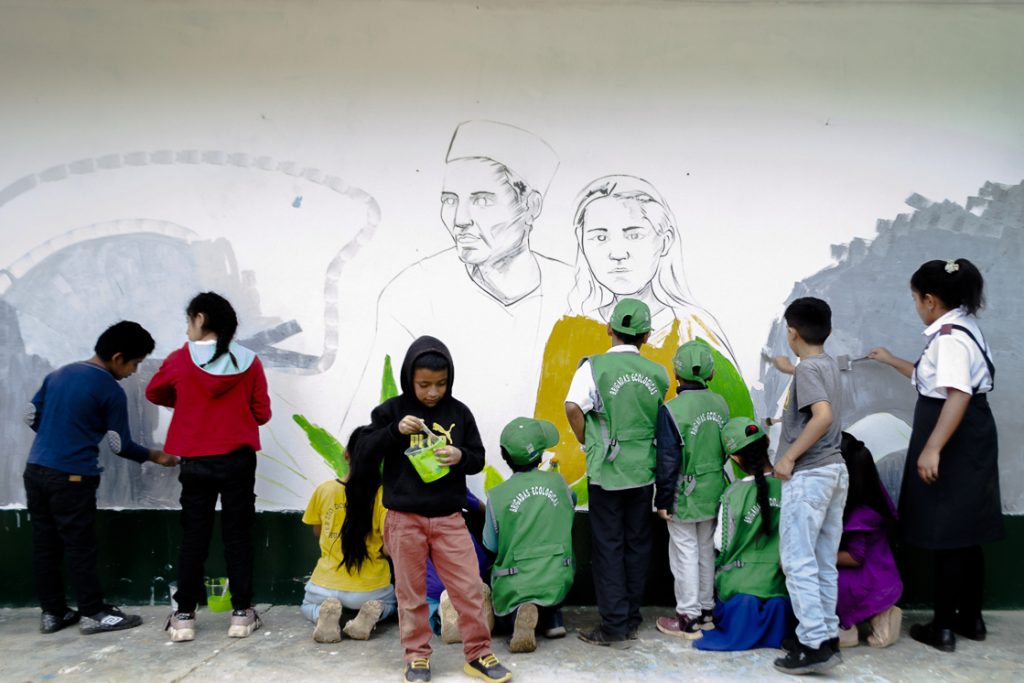
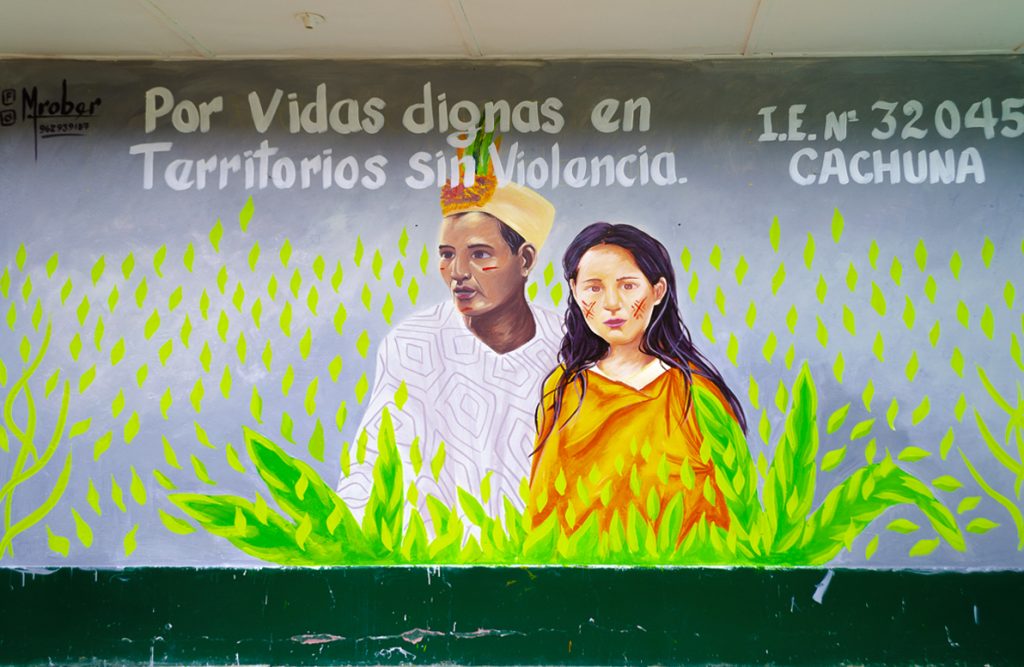
Local knowledge and trans-local exchange networks contribute to building stronger food sovereignty
Given their historical importance in the coexistence of communities to resist globalization and homogenization of the conventional food system, throughout the process of transforming the food model, there is a motivation not to abandon collective practices and customs that exist in the territories. Therefore, all this knowledge becomes spaces and moments of constant dispute. Within our current actions, we have been able to integrate the search for aesthetic experiences where the problems of the agrifood sector connect with various expressions of sharing sensitivities, such as poems, embroidery, drawings, songs, photographs and, recently, the creation of murals. This connection with the sensitive has created greater closeness with our participants, students, and communities with whom we work.
On a regional level, we consider it extremely important for the city to understand what is happening in rural areas to sustain territorial defense and try to ensure food sovereignty in the face of the climate crisis. There is a disconnection with its problems. The city does not have to validate what happens in the countryside. However, it does have to accompany and support the struggles in rural areas, take ownership of environmental problems, and participate in proposing solutions, such as the transformation of the food model, the agroecological transition, and the commitment to a social solidarity and popular economy.
